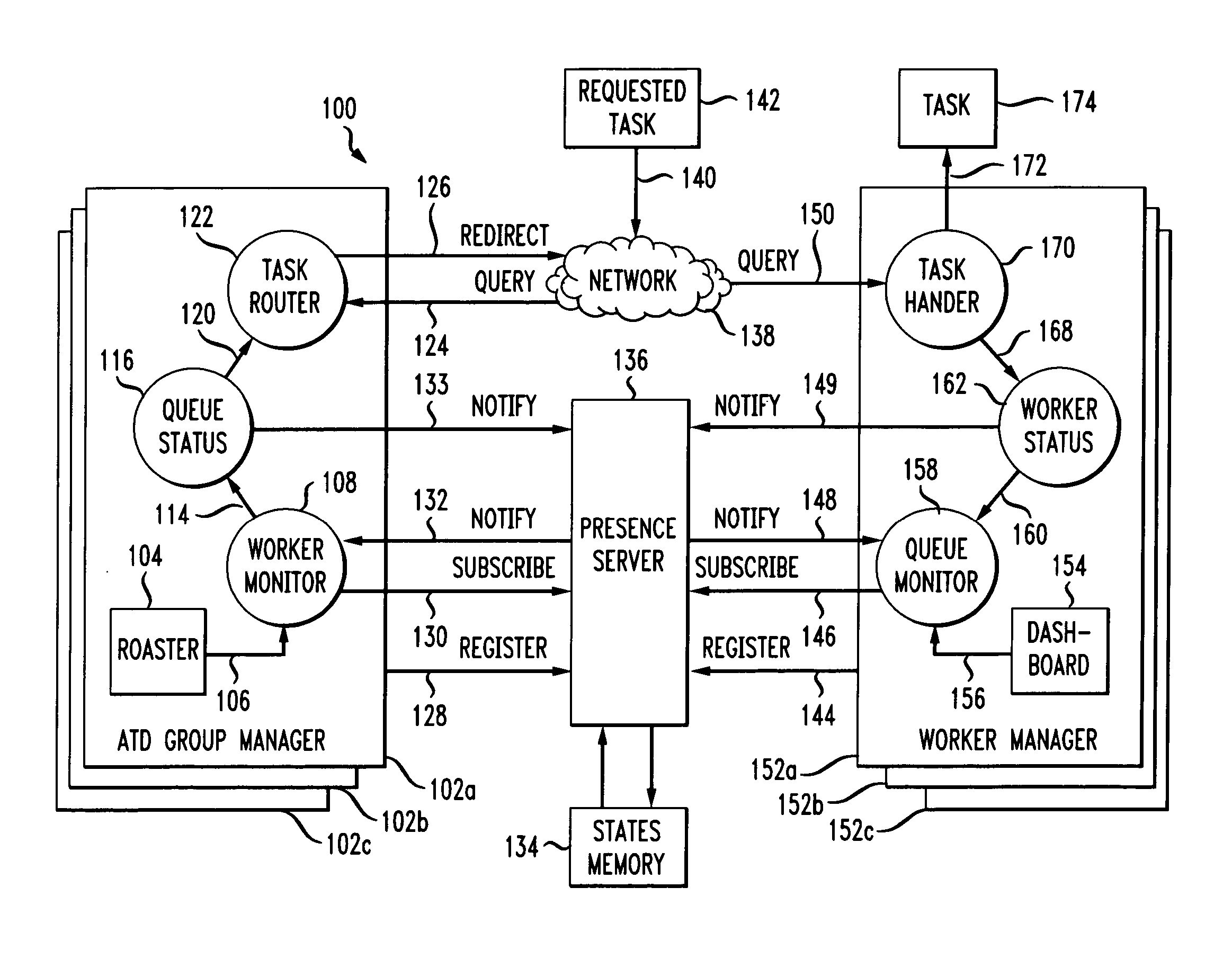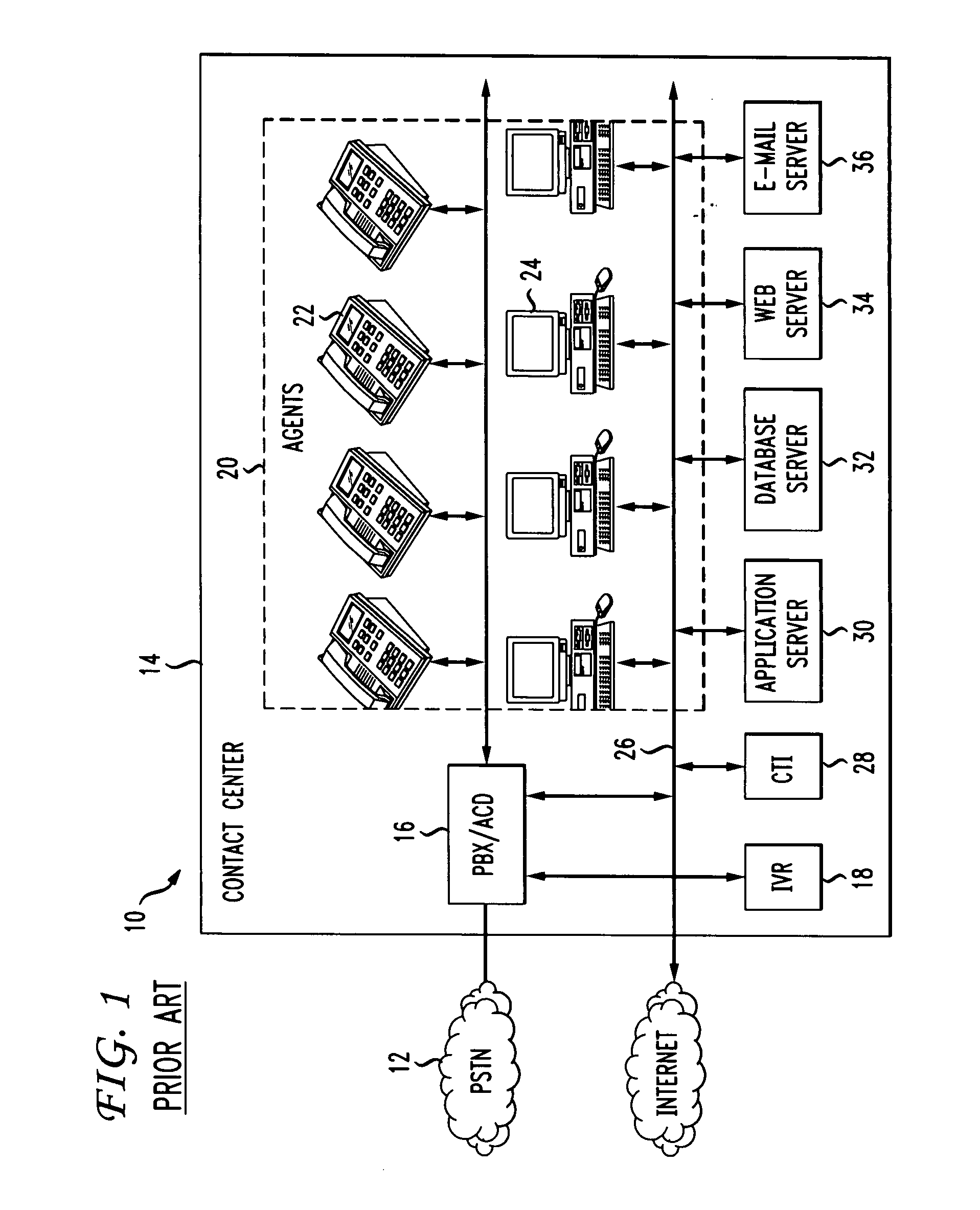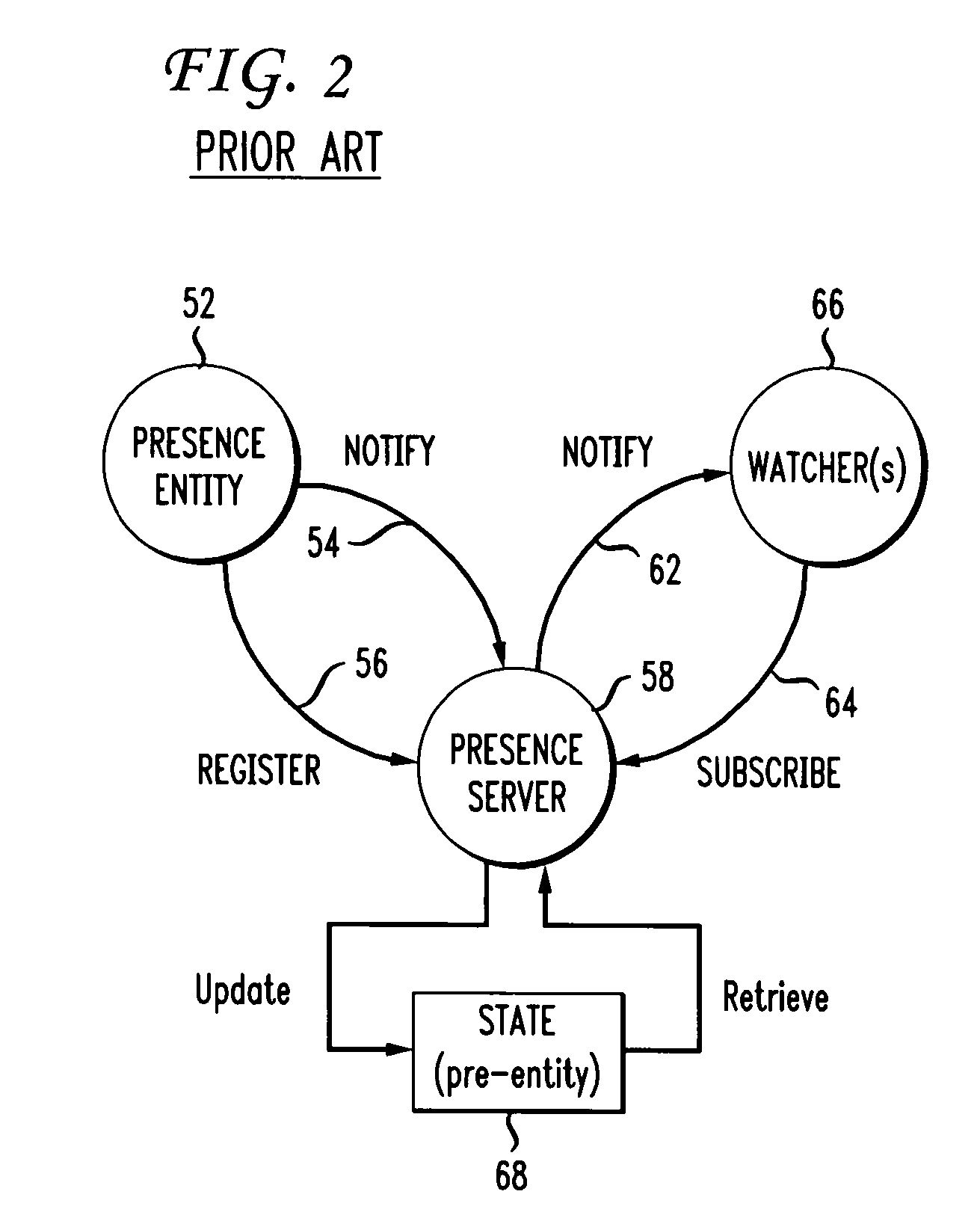Method and system for assigning tasks to workers
a technology for assigning tasks and workers, applied in the field of computer systems and methods, can solve the problems of complex and expensive customer premise equipment, unsuitable manual assignment process, and relatively static number of agents working in association with a group, and achieve the effect of reducing or eliminating customer premise equipmen
- Summary
- Abstract
- Description
- Claims
- Application Information
AI Technical Summary
Benefits of technology
Problems solved by technology
Method used
Image
Examples
Embodiment Construction
[0030] Before describing the method and system for assigning tasks to workers, some introductory concepts and terminology are explained. In particular, a prior art “contact center” is described below in conjunction with FIG. 1. Also, a prior art “instant message” system is described below in conjunction with FIG. 2.
[0031] Referring now to FIG. 1, a prior art contact center 10, also referred to as a calling center or a communication center, is connected to a public switched telephone network 12 (PSTN). The PSTN will be recognized to be a worldwide telephone system that provides telephone call connections including telephone call connections to a contact center 14. The contact center 14 can include a private branch exchange 16 (PBX) usually combined with an automatic call distributor 16 (ACD). The PBX 16 will be recognized to be a system that can route incoming telephone calls to intended call recipients, or agents. The ACD 16 will be recognized to be a system that can provide teleph...
PUM
 Login to View More
Login to View More Abstract
Description
Claims
Application Information
 Login to View More
Login to View More - R&D
- Intellectual Property
- Life Sciences
- Materials
- Tech Scout
- Unparalleled Data Quality
- Higher Quality Content
- 60% Fewer Hallucinations
Browse by: Latest US Patents, China's latest patents, Technical Efficacy Thesaurus, Application Domain, Technology Topic, Popular Technical Reports.
© 2025 PatSnap. All rights reserved.Legal|Privacy policy|Modern Slavery Act Transparency Statement|Sitemap|About US| Contact US: help@patsnap.com



